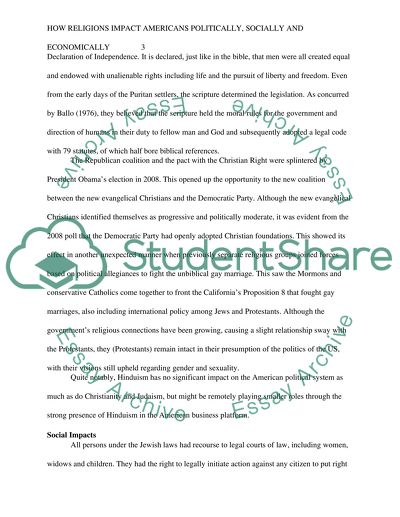Cite this document
(“How Religions Impact Americans Politically, Socially and Economically Essay”, n.d.)
Retrieved from https://studentshare.org/religion-and-theology/1479710-how-religions-impact-americans-politically-socially-and-economically
Retrieved from https://studentshare.org/religion-and-theology/1479710-how-religions-impact-americans-politically-socially-and-economically
(How Religions Impact Americans Politically, Socially and Economically Essay)
https://studentshare.org/religion-and-theology/1479710-how-religions-impact-americans-politically-socially-and-economically.
https://studentshare.org/religion-and-theology/1479710-how-religions-impact-americans-politically-socially-and-economically.
“How Religions Impact Americans Politically, Socially and Economically Essay”, n.d. https://studentshare.org/religion-and-theology/1479710-how-religions-impact-americans-politically-socially-and-economically.


